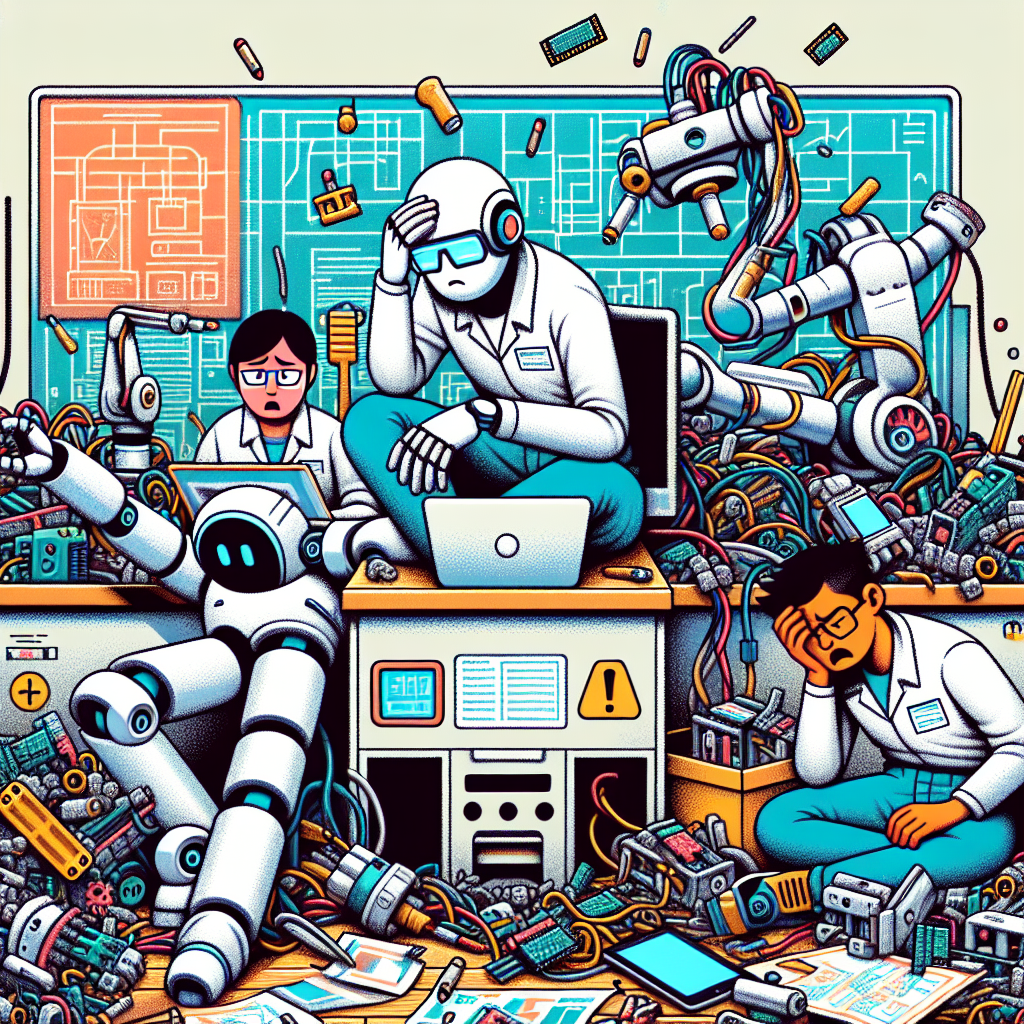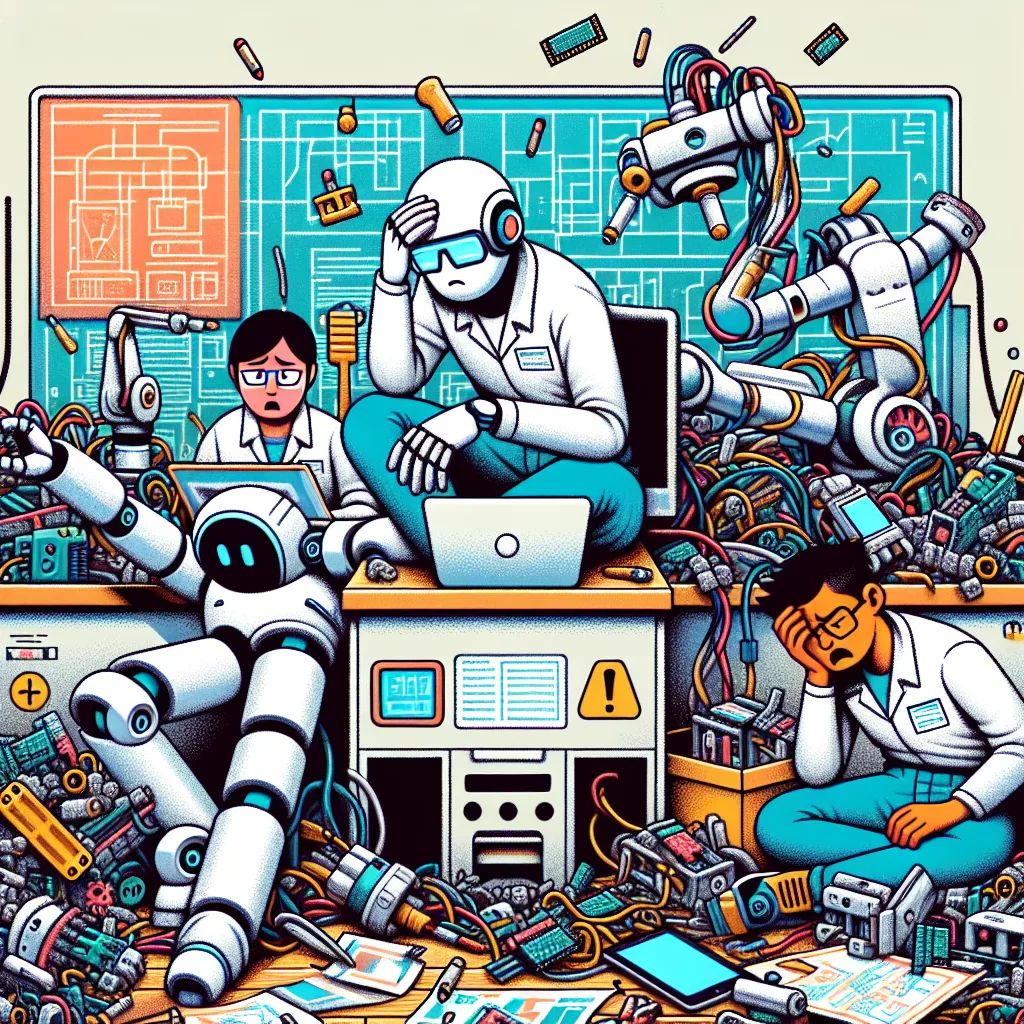Robotics Engineers face unique burnout risks amid demanding schedules, constant innovation, and tight deadlines. Stay ahead by understanding the key stressors.

- High demands for innovation and precision.
- Intense competition within the tech industry.
- Long and irregular working hours.
- Pressure to meet tight deadlines.
- Constantly evolving technology pressures adaptation.
- Limited work-life balance.
- Frequent troubleshooting and problem-solving stress.
Current data on career burnout among Robotics Engineers indicates a moderate level of severity.
Reasons Robotics Engineers burnout
According to the science to date there are key reasons people burnout at work. Here’s our top reasons why Robotics Engineer in the Technology category has a burnout risk of Moderate:
As a robotics engineer, you may experience burnout for several reasons. The fast-paced nature of technological advancement can be overwhelming. Keeping up with new developments often requires continuous learning and adaptation, which can be exhausting over time.
Long working hours are another contributing factor. Robotics projects often have tight deadlines, requiring extensive time commitments. This can disrupt work-life balance and lead to fatigue.
Additionally, high levels of pressure and expectations for perfection in this field contribute to stress. Mistakes can be costly, both financially and in terms of time, so the demand for accuracy is significant.
The interdisciplinary nature of robotics engineering means you are expected to have expertise in programming, electronics, mechanics, and more. Juggling these different skill sets can be mentally taxing.
Workplace dynamics can also play a role. If you find yourself in an environment with poor communication or lack of support, it can exacerbate feelings of isolation and stress.
Lastly, the passion for innovation that draws many into this field can paradoxically lead to burnout. The drive for creativity and innovation sometimes leads to neglect of self-care and personal time.
Addressing these issues involves prioritizing self-care, seeking supportive work environments, setting realistic goals, and ensuring balance between career and personal life.
Burnout rate data for Robotics Engineer/Technology
The impact of burnout on Robotics Engineers and the broader technology industry is a growing area of interest, yet specific data remains limited. A report by the World Health Organization highlights stress factors in high-demand professions like technology. It suggests that robotics engineering may be prone due to fast-paced work environments and constant innovation demands. One key study emphasizes workload and isolation as common stressors in tech-related fields.
Despite limited targeted studies, the tech industry at large is known for high burnout rates due to continuous pressure for innovation and competition. A relevant source is the IEEE Spectrum which discusses job satisfaction and stress in engineering fields (https://spectrum.ieee.org). Another resource is a Forbes article on tech industry burnout, which provides insights into stress factors affecting tech professionals (https://www.forbes.com/sites/forbestechcouncil/2021/03/01/the-burnout-dilemma-in-tech/). While specific data for Robotics Engineers is scarce, these insights highlight general technology industry trends.
Do you have experience of Burnout as a Robotics Engineer or in Technology?
Share your story about Robotics Engineer burnout on our share your story page.
Burnout in Technology
Career Burnout Rates > Burnout in Technology > Robotics Engineer Burnout


